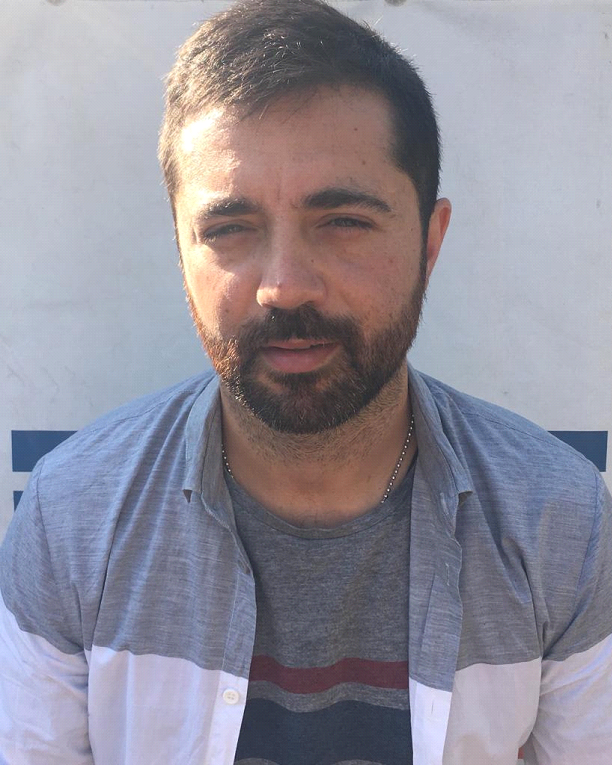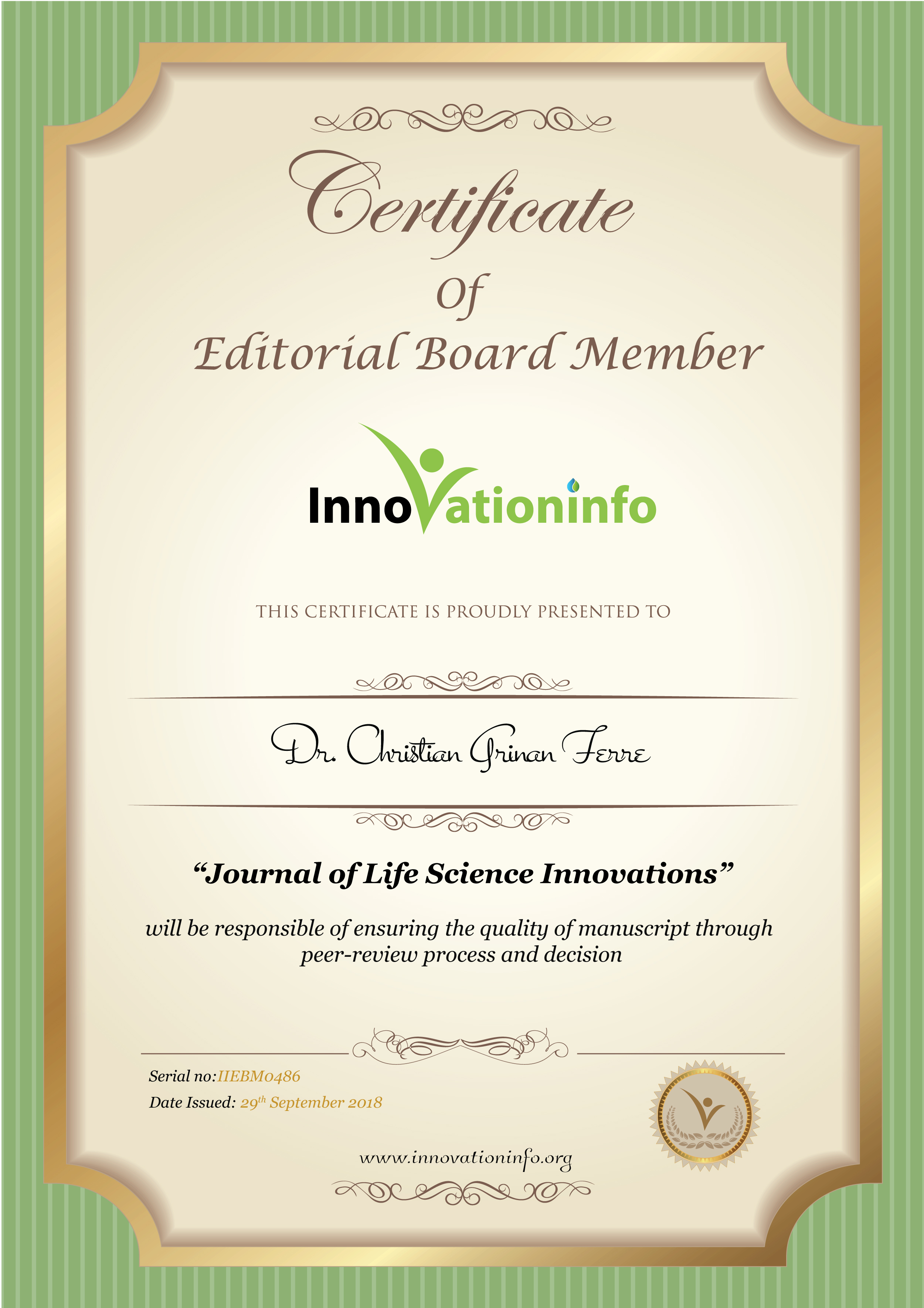Dr. Christian Grinan Ferre
Journal of Life Science Innovations
Neuropharmacology and Neurodegeneration

Name: Dr. Christian Grinan Ferre
Educational Qualification: Ph.D., PostDoc (Current).
Designation: Postdoctoral Researcher
Department: Neuropharmacology and Neurodegeneration
University: University of Barcelona
Email: christian.grinan@ub.edu
Research Interests: Senescence, Alzheimer’s disease, Neuroinflammation, Neuroprotection, Epigenetic control of neurodegeneration.
Biography: Dr. Christian Griñán-Ferré is a teaching assistant at the Faculty of Pharmacy and Food Science from the University of Barcelona. He received his Ph.D in the epigenetic modulation of Alzheimer’s Disease (AD) (Biomedical Biotechnology) at the University of Barcelona and Master degree in Anti-infective Therapy at Omnia Molecular S.A. He has participated in 9 competitive research projects in neuropharmacology of aging and collaborate with Oryzon Genomics SA. Scientific outcome: 18 original papers in indexed journals (all in the Q1) with a number of citations 150 and 3 patent applications. H-index: 8. Expert in behavioral studies, cell biology, biochemistry, molecular techniques, biotechnology, and bioinformatics analysis. During his research, He focused his knowledge in the epigenetic modulation of neurodegeneration and AD. Furthermore, the study of non-pharmacological interventions such as Environmental Enrichment (EE) paradigms to find new targets to prevent or cure the neurodegeneration. Currently, He is working as a post-doctoral researcher at Neuropharmacology in aging and neurodegeneration (Neuroscience Institute, UB). He is in a multidisciplinary group interested in the identification of new targets to achieve preventive or curative strategies by reducing inflammation, mitochondrial dysfunction, endoplasmic reticulum (ER) stress and oxidative stress (OS) in pathological senescence and the crossroad with epigenetics. Using his background knowledge in order to organise pharmacological (melatonin, resveratrol and new chemical entities) and non-pharmacological (environmental enrichment paradigms, exercise, caloric restriction) strategies to ameliorate and prevent them with several mice models of neurodegeneration and AD such as SAMP8 and 5xFAD. Recently, He has initiated studies with new compounds acting in putative new targets implicated in neuroinflammation and oxidative stress. In parallel, He performs epigenetic studies with these mice and with a new murine model of Niemann-Pick Type C (NPC) in order to characterise epigenetic changes for this rare disease that might underlie cognitive impairment and neurodegeneration.
Technologies/methods:
- Molecular biology standard methodologies: protein levels determination, gene transcription quantification, Inmunohistochemical methodology, confocal microscopy.
- Cognitive test: learning, memory and BSPD.
· Grinan-Ferre C, Perez-Caceres D, Gutierrez-Zetina SM, Camins A, Palomera-Avalos V, Ortuno-Sahagún D, Rodrigo MT, Pallas,M. Title: Environmental Enrichment Improves Behavior, Cognition, and Brain Functional Markers in Young Senescence-Accelerated Prone Mice (SAMP8). Molecular Neurobiology 2015: 53(4):2435-50.
· Griñan-Ferré, C; Sarroca, S; Ivanova, A.; Camins, A; Sanfeliu, C; Pallas, M. Epigenetic mechanisms underlying cognitive impairment and Alzheimer’s disease hallmarks in 5XFAD mice. Aging-US. 2016; 8(4):664-84)
· V. Palomera-Avalos, C. Griñán-Ferré, D. Puigoriol-Ilamola, A. Camins, C. Sanfeliu,A. M. Canudas, M. Pallàs Resveratrol Protects SAMP8 Brain Under Metabolic Stress: Focus on Mitochondrial Function and Wnt Pathway Molecular Neurobiology 54(3):1661-1676
· Grinan-Ferre C, Puigoriol-Illamola D, Palomera-Ávalos V, Pérez-Cáceres D, Companys-Alemany J, Camins A, Ortuño-Sahagun D, Rodrigo MT, Pallàs M.Environmental Enrichment Modified Epigenetic Mechanisms in SAMP8 Mouse Hippocampus by Reducing Oxidative Stress and Inflammaging and Achieving Neuroprotection. Front Aging Neurosci. 2016 8;8:241.
· Leiva R, Grinan-Ferre C, Seira C, Valverde E, McBride A, Binnie M, Perez B, Luque FJ, Pallas M, Bidon-Chanal A, Webster SP, Vazquez S. Design, synthesis and in vivo study of novel pyrrolidine-based 11β-HSD1 inhibitors for age-related cognitive dysfunction. Eur J Med Chem. 2017 Oct 20;139:412-42

Serial no:IIEBM0486
Guidelines
Subscribe

This work is licensed under a

